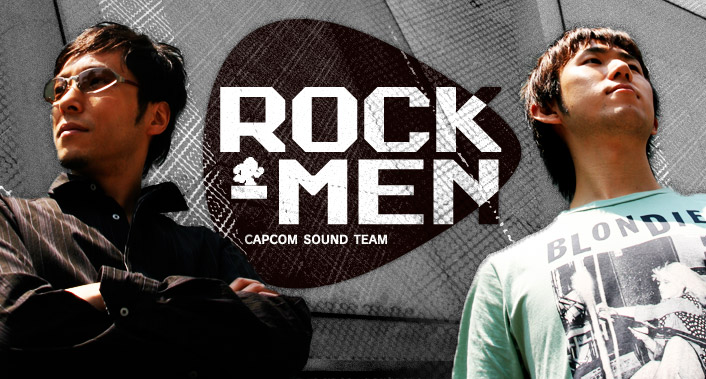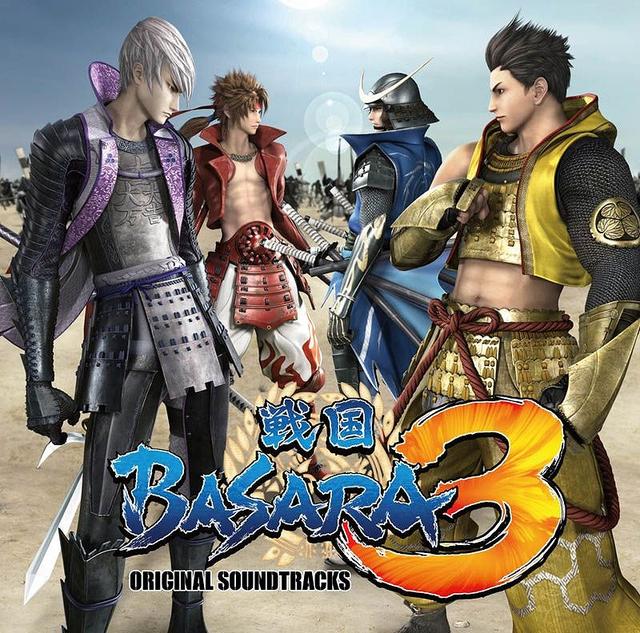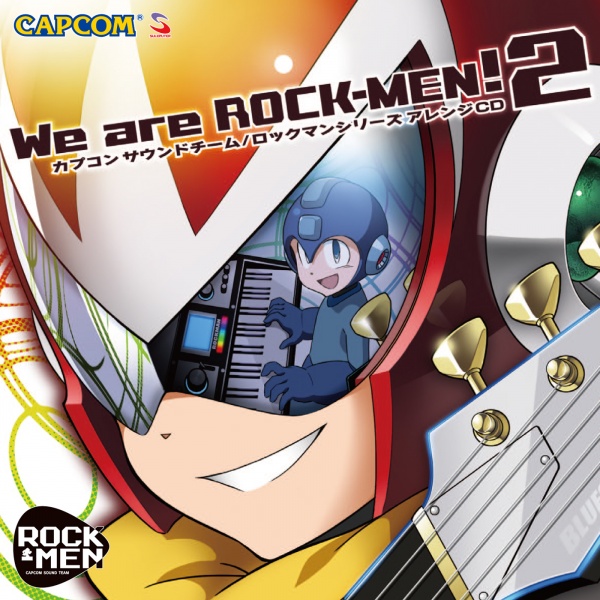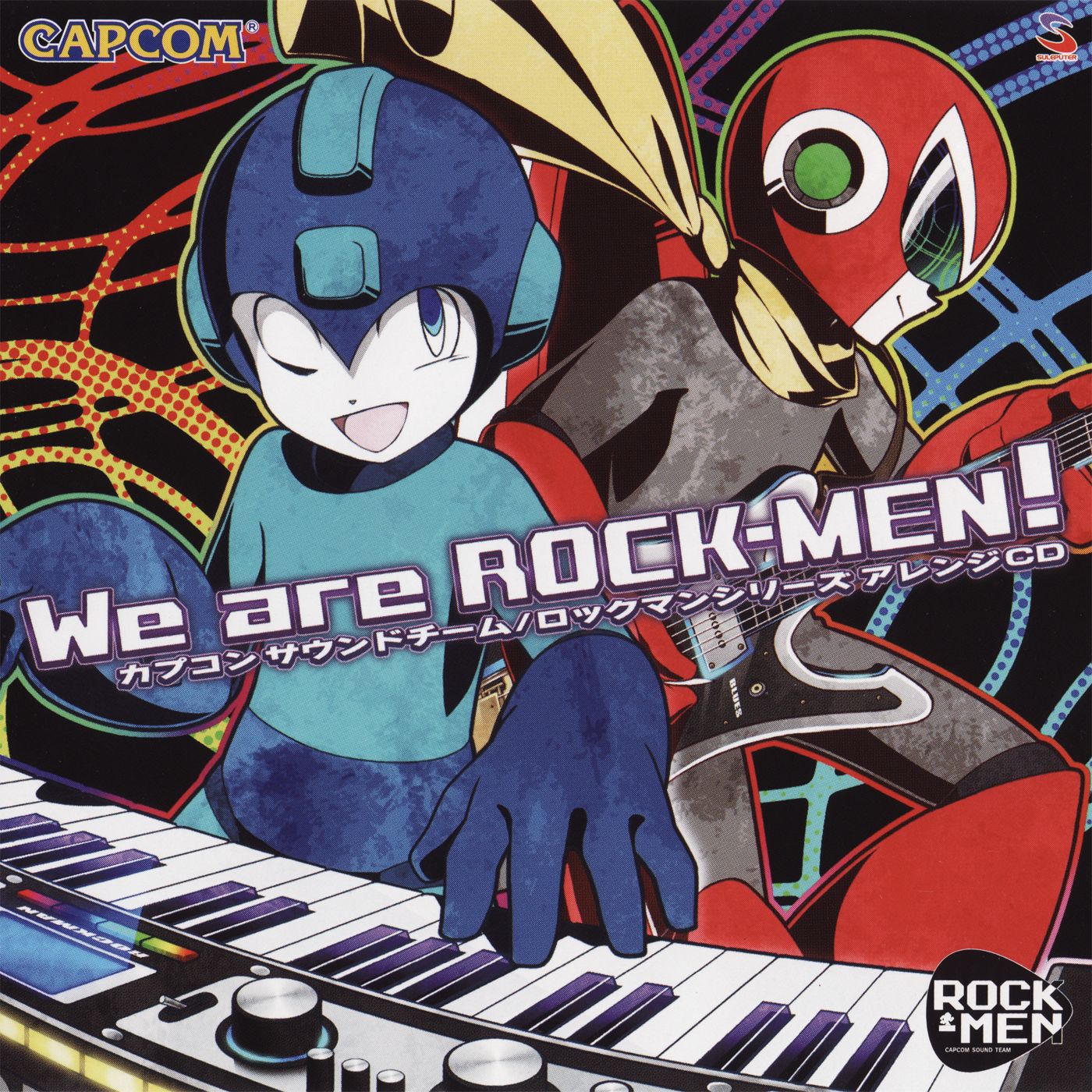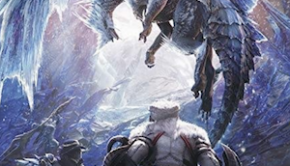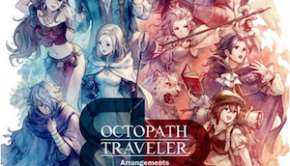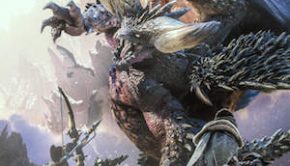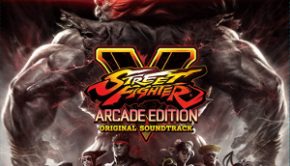Masahiro Aoki Interview: Bringing Rock Back to Capcom
At the age of just 29, Masahiro Aoki has already has had a very successful career as both a doujin and professional musician. Many of his followers know him as Godspeed, the musician and guitarist behind many incredible arranged and original albums. However, he also spend six years scoring Capcom’s biggest franchises, including Sengoku Basara and Mega Man.
Having discussed his background and doujin works in the first part of this interview, this second part focuses on his works at Capcom. In particular, he shares his experiences writing the fusion sounds and iconic themes of the Sengoku Basara franchise, and how he brought rock back to Capcom with his Mega Man tribute albums and Rockman Xover. He also gives a taste of what to expect from the musician now he has gone independent once more.
Interview Credits
Interview Subject: Masahiro Aoki
Interviewer: Chris Greening
Translation & Localisation: Masahiro Aoki, Gerardo Iuliani
Editor: Chris Greening
Coordination: Don Kotowski
Interview Content
Chris: Masahiro Aoki, having focused on your original works in the first part of the interview, it’s a pleasure to have you back to discuss your game projects. After several years working as a doujin musician, you decided to join the Capcom sound team in 2008. What inspired this decision and how did you find the switch? Was it ever difficult to combine your in-house work with doujin projects?
Masahiro Aoki: In Japan, the custom is that a group of students graduate once per year, which then begin working all at once. But in my case, I was forced to make a choice between going to a graduate school or begin working right away. As the subject for my major was electronics, which was a field that had nothing to do with music, I decided against going to the graduate school. Instead, wanting to make my dreams of creating game music come true, I started looking for positions. I initially failed at finding a job and became unemployed for a year, but eventually began working for Capcom. As for continuing doujin activities, I didn’t really have much problem, aside from the fact that the time available had significantly decreased.
Chris: Your first major project at Capcom was the critically-acclaimed soundtrack for Sengoku Basara 3 (rebranded Sengoku Basara: Samurai Heroes in the West). Could you share how you took the series’ music to the next level on this project? Did you extensively liaise with T’s Music and Ko Otani on this project?
Masahiro Aoki: A senior of mine called [Mitsuhiko] Takano-san was appointed as sound director for Sengoku Basara 3, so I concentrated on making many of the tracks for the game in a way that followed his vision. Among them, the most popular was the theme for the military commander [Editor’s Note: Ieyasu Tokugawa], which made him think that tracks of this genre and concept matched the game the most.
As the sole in-house composer, being involved with Sengoku Basara 3 was quite a challenge to me, as I needed to find out what things I could do and what I could bring to the project as a whole. When I began participating on the project, I was quite worried about how I’d make music that was similar in some to that made by T’s Music, but after I while, my consciousness shifted over to making music for fields that T’s Music hadn’t made before. And thus, I arrived at the conclusion that it wouldn’t be a mistake to incorporate a guitar sound, and that it would be the most effective contribution I’d be able to offer.
And as a producer, I was asked to tailor-make several songs for the game’s cutscenes, which I thought would be absolutely essential to telling the story of Sengoku Basara 3. Even in comparison to Sengoku Basara 2 Eiyuu Gaiden, Sengoku Basara 3 has extremely strong story. However, editing the stage themes in a way that matched how we wanted to express the complicated emotions of the military commanders had its limits. Because of this, I made around twenty songs for cutscenes that all used the motifs heard in the themes of the military commanders, which were inlaid in a total of 160 scenes. I thought this would perhaps add some extra depth to the drama depicted in the game.
Chris: Among our favourite compositions from you are Sengoku Basara 3’s “The Winter Campaign of Osaka” and “Dead Heat”. Could you tell us about how you went about composing such strong melodies here? How were you able to convincingly blend orchestral, rock, and traditional Japanese elements?
Masahiro Aoki: “The Winter Campaign of Osaka” is definitely my favourite composition in Sengoku Basara 3! The melody and the timbre of the harpsichord represents Mitsunari’s fury and sorrow, and since Mitsunari moves so very fast, I thought the song should be fast too. This song is kind of a symbol of the Western squad in the battle of Sekigahara. I wrote it in the beginning of the Sengoku Basara 3‘s development process, and it determined the direction of my later compositions.
“Dead Heat” is also a favorite of mine. This may be the only song of my composition in Sengoku Basara 3 that doesn’t contain any Japanese instruments, but strangely enough, we can still feel the Basara style in it. Since Masamune was always associated with electric guitar and Masamune’s stage in Sengoku Basara 3 was like a racing game, I decided to write a hard rock tune for this scene. The most important thing in this song was the riff, because it must accelerate players’ feelings to race with Masamune and Kojuro and defeat them. By the way, the reason why I chose G minor for this song is that this stage is built on top of the “silver mountain” ! I hope Ritchie Blackmore’s fans agree with my choice.
Chris: You worked in leading roles on Sengoku Basara 3 Utage and Sengoku Basara 4. How did you develop the series’ sound on these titles? Were there differences in the circumstances of working on them?
Masahiro Aoki: With respect to Sengoku Basara 3 Utage, that was my very first work as a lead composer for Capcom. As I already knew and appreciated the world setting, soundtrack, and manuscripts from the original Sengoku Basara 3, it was a job with just the right amount of difficult for me. However, I remember I had to work under a pretty tight schedule since I was also working on Sengoku Basara: Chronicle Heroes at the time. When I finished working on Sengoku Basara 3 Utage, since I had gained a lot of knowledge regarding all the soundtracks in the series, I could make a wider contribution to the series with compositions and arrangements: not only for the games, but also for the promotional events and fan events.
And maybe this is common knowledge already, but here in Japan, we in-house composers are required to have a lot of abilities related to music. So in addition to being composers, we have to be able to work in related fields, such as production and PR. It was under these circumstances that I got myself credited as music director for my work in Sengoku Basara 4. It might be a sequel, but since it’s the fourth game in a series, it’s normal for us to seek breakthroughs and changes on it. It’s for that reason that I decided to aim for giving Sengoku Basara 4‘s soundtrack a feeling more similar to that of Japanese animation. I aimed to give a higher quality and a wider range of variety to the music. On the production side, I concentrated on being able to switch the songs at times in a seamless way, at times in a dramatic one, in a scheme to further pull in the players into the game world.
I believe my greatest contribution as a composer for the game was Gotou Mototsugu’s theme. That’s because it hasn’t still become typical in the console game world to feature songs of the “Djent” genre, despite it becoming explosively popular in the heavy metal sphere. However, since I arranged Gotou’s theme with a more Japanese style in order for it to fit the game better, we could say I’ve given birth to it as a new type of Djent song.
Chris: Inspired by your long love for the Mega Man series, you co-founded the band ROCK-MEN with Yasumasa Kitagawa and Mitsuhiro Takano. What was it like to record in the studio and perform live with the band?
Masahiro Aoki: Actually, the covers for ROCK-MEN are each made in a different work environment and circumstances. The first piece we made as ROCK-MEN was an arrangement of the boss theme from Mega Man 6, which was a collaboration with a Takano-san. I just added the guitar to the arrangement Takano-san made, while Kitagawa-san was in charge of the editing and mixing techniques for the music. After that, we made some more works together, culminating in the recording of “Dr. Wily Stage 1 -Omegaman Mix-” for our album We are ROCK-MEN!2.
As for when we perform live, our style is to play the song alongside a backing track. I actually don’t have much experience yet when it comes to playing at live music clubs.
Chris: ROCK-MEN released two studio albums featuring rock and electronic arrangements of Mega Man favourites. Could you share your experiences on these albums? What are your favourite arrangements?
Masahiro Aoki: When we first formed ROCK-MEN, I never thought it’d become such an exciting band. I’m really glad that we managed to make and release our second album. Out of all the arrangements we’ve made, I still truly love the Mega Man 3 ending theme from our first album and the Dr. Wily Stage 1 song from our second one. But you could say that, since ROCK-MEN basically only arranges the tracks we already like, we end up liking them all a great deal.
As for the ROCK-MEN work that left the greatest impression on me, it would being offered to be the group that would play the intro song in the professional wrestling holy land of Japan for the DDT Wrestler Kenny Omega, and after that, performing in the Rakuen Hall. This is the greatest memory I have, and we could say that it’s even more important to me as a member of ROCK-MEN than as a Capcom employee. As video game lover, as a Rockman lover, and as a guitar lover, I’m truly grateful for having gotten the chance to pursue them all at once and be able to do something so great.
Chris: Though Mega Man game production has halted while you’ve been in Capcom, you did get a chance to be involved in a smaller project: Rockman Xover for the iOS. Could you share your memories working on this title?
Masahiro Aoki: The first time I heard about the game was when I was commissioned to make the BGM for the PV that was unveiled during the TGS. I only learned this afterwards, but as my love for Rockman was so well-known in the department in which I worked, my seniors recommended me to the producers for the game. As I particularly love a lot of the titles in the initial series and Rockman X series, I put my heart on reviving the rock style from these times with a more modern sound.
I made the “Theme of Rockman Xover” by giving a concrete form to the image of Rockman music that had developed within myself. As a result, I didn’t need more than around two hours to make the initial draft for that track. Even the producer was very happy about it, as when he received and listened to the song, he told me “If this is the song a Rockman lover like yourself made, Aoki-san, I think we can consider it as a true Rockman song”. You can hear it in the video below:
Aside from the original songs I made for Xover, I also proposed some other ideas in order to increase the degree of satisfaction of the game as well increasing its degree of recognition, such as working in making arranged versions of the songs from past titles or distributing the soundtrack for free in the official site of the Capcom Sound Team. I’m a Rockman fan myself, so it was pretty fun to be able to actually experience how the things that made me happy were connected with a making a contribution to the fans out there.
Chris: You also took small roles on the Monster Hunter and Jojo’s Bizarre Adventure franchises. What were they?
Masahiro Aoki: With regards to my role in Monster Hunter 3, that game was developed right as I entered the company, so I contributed to it as part of my training process. Unfortunately, I couldn’t make a great contribution to it. Luckily the only track I made for it was accepted [Editor’s Note: “Barley Field Walkway”].
About Jojo’s Bizarre Adventure HD Version, I was told by a senior colleague that they needed me to write two tracks no matter what while they were porting the game, so I had to make them as fast as I could. However, the only thing I did was making these tracks and making sure that the internal sound fonts at the time played them back as faithfully as possible, so I didn’t really contribute much to it.
Chris: You have recently left Capcom to further pursue your independent activities. Could you tell us more about what the future holds? Do you have any message to your fans around the world? Godspeed!
Masahiro Aoki: The reason why I left Capcom is because I wanted to enliven the music scene by showcasing the coolness of guitar music as the label owner of ViViX. As a producer, I’ll continue working hard so we can make some exciting things altogether, and I think there’ll be more and more products released as time passes, so please look out for it. Of course, I’ll still continue working as an artist; that work will just be one part of me continuing me career of being a game music composer.
Just being able to make music I’d like to hear myself is quite wonderful, but if I could enjoy alongside all my friends, it’d make me even happier. And that experience shouldn’t just be limited to one person’s vicinity. Don’t you think the world would become a much more enjoyable place if all the people in it could share something in common? I don’t intend to limit my plans just to Japan from now on, as I hope I’ll be able to collaborate with people from other parts of the world, and I’ll do my best to make a lot of people empathize with the future ViViX is going to lay off. Let’s all make together a shared world where we can all enjoy and be touched by the music!
Posted on July 27, 2014 by Chris Greening. Last modified on July 27, 2014.

